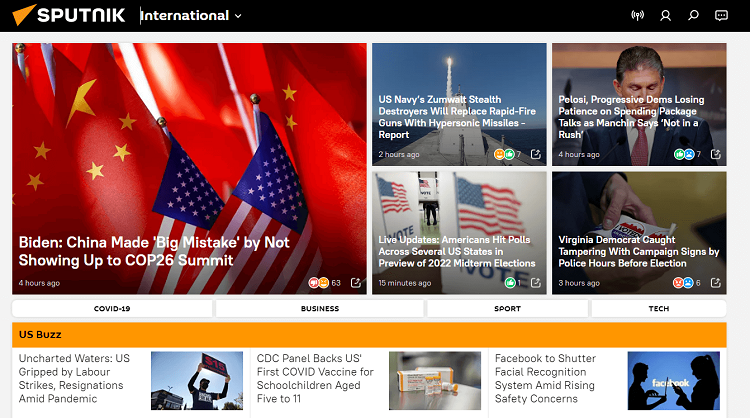The Rise of News Blogs: A Deep Dive into Modern Journalism

Introduction to News Blogs: A Digital Revolution in Journalism
Over the past two decades, the way we consume news has undergone a drastic transformation. The emergence of news blogs has been one of the most significant developments in this transformation. Traditional newspapers and television stations are no longer the sole sources of information. With the internet making news more accessible, bloggers and digital platforms have become the go-to sources for millions of people.

News blogs serve a variety of purposes. Some function as niche platforms, providing in-depth commentary on specific industries, politics, entertainment, or global events. Others focus on offering real-time updates, making the content accessible to a broader audience. Regardless of their focus, these blogs have successfully democratized the news landscape, giving a voice to independent writers, citizen journalists, and professionals alike.
What sets news blogs apart from conventional news sources is their flexibility. Bloggers aren’t bound by corporate editorial policies or stringent publishing cycles. Instead, they can provide immediate, candid, and often more personal takes on the events that shape our world. This freedom allows news blogs to fill gaps left by traditional media, offering more diverse perspectives and more rapid news cycles.
How News Blogs Changed the Landscape of Information Sharing
Before the rise of blogs, journalism was a one-way communication channel, dominated by large media corporations. People had limited opportunities to engage directly with reporters or contribute to the news dialogue. News blogs disrupted that system, turning passive consumers into active participants. Now, anyone with a laptop and an opinion can become a reporter, analyst, or critic.
News blogs have fostered a culture of interaction. Most blogs have comment sections, social media integrations, and forums where readers can share their thoughts. This shift has encouraged a more engaged audience, allowing people to debate, challenge, and even collaborate with news writers. In many cases, readers also contribute to news gathering, alerting bloggers to new developments or correcting misinformation in real-time.
Moreover, news blogs have played a significant role in the spread of viral news. Traditional outlets may take time to verify facts, leading to slower dissemination of breaking stories. In contrast, news blogs can quickly break a story and update it as new information becomes available. This speed has been both a blessing and a curse, as it prioritizes rapid dissemination over fact-checking, but it undeniably brings attention to crucial issues more quickly.
The Appeal of Independent News Blogs: Freedom of Expression
One of the key reasons for the popularity of news blogs is the sense of independence they offer. Unlike traditional media outlets, which are often owned by conglomerates or influenced by political agendas, independent news bloggers can express their views freely. This unfiltered approach has garnered a loyal following, particularly among readers who feel disenfranchised by mainstream media.
The transparency of personal opinion is both a strength and a potential drawback of news blogs. Readers are aware that they’re getting someone’s personal take, and while this can be enlightening, it can also lead to bias. However, many people prefer this kind of open editorialization to the perceived neutrality (or lack thereof) in traditional news reporting. The freedom to mix facts with personal opinion offers a unique reading experience that is both informative and reflective of diverse worldviews.
Furthermore, news blogs often give a voice to marginalized communities or alternative perspectives that may not be covered by the mainstream press. From local grassroots movements to international social justice campaigns, bloggers have highlighted issues that might otherwise remain unnoticed. This empowerment of underrepresented voices is one of the most compelling aspects of news blogging.
Monetization Strategies: How News Blogs Generate Revenue
Running a news blog can be more than just a hobby – it can be a full-time profession. While some bloggers write for passion, many are now making a living from their online platforms. The rise of news blogs has seen an evolution in monetization strategies, allowing bloggers to turn their passion into profit.
One of the primary methods of generating revenue is through advertising. Most news blogs use banner ads or sponsored content as a way to monetize their site traffic. Larger blogs with high readership numbers are particularly attractive to advertisers. Google AdSense is one of the most popular platforms bloggers use to display relevant ads on their pages. This offers a passive way to earn income based on site traffic and engagement.
Another significant revenue stream for news blogs is affiliate marketing. Bloggers often recommend products or services in their posts, embedding affiliate links that generate commissions when readers make purchases through those links. Subscription models are also gaining traction, where readers pay for premium content, ad-free experiences, or exclusive news stories. Platforms like Patreon have made it easier for bloggers to receive direct support from their loyal followers.
The Role of SEO in Building a Successful News Blog
Search Engine Optimization (SEO) is a critical factor in the success of any news blog. With the sheer volume of content available online, getting noticed by search engines like Google can make or break a blog. Bloggers who understand the importance of SEO can rank higher in search results, attracting more traffic to their sites.
Effective SEO for news blogs begins with keyword research. Bloggers need to identify what terms their potential readers are searching for and then craft content around those keywords. This involves balancing popular search terms with less competitive, long-tail keywords that are easier to rank for. Additionally, SEO-friendly headlines, meta descriptions, and keyword integration throughout the blog post are vital components.
Another crucial aspect of SEO is backlinking. When other reputable sites link to a news blog, it signals to search engines that the content is trustworthy and relevant. Bloggers often build relationships with other websites, engaging in guest posting or collaboration to earn those valuable links. Optimizing site speed, ensuring mobile compatibility, and creating engaging multimedia content like images and videos also contribute to improved SEO rankings.
Challenges Facing News Blogs: Fact-Checking and Misinformation
While news blogs have revolutionized journalism, they also face significant challenges. One of the most pressing issues is the rise of misinformation. The fast-paced nature of news blogs often prioritizes speed over accuracy, leading to the spread of unverified or incorrect information. In contrast to traditional newsrooms, where multiple editors and fact-checkers scrutinize content, many blogs lack these safeguards.
The spread of “fake news” has been a hot topic in recent years, and news blogs are often at the center of these discussions. Some blogs prioritize sensationalism to attract clicks, sometimes sacrificing truth for virality. This has caused concern among media watchdogs, as the line between opinion and fact becomes blurred. Bloggers need to balance their desire to publish quickly with the responsibility of ensuring that their content is factual.
To combat this, many reputable news bloggers have adopted more rigorous fact-checking protocols. Some hire freelance editors or collaborate with external fact-checking organizations. Others rely on their readers to point out inaccuracies, fostering a sense of community accountability. Regardless of the approach, the onus is on bloggers to maintain credibility and trust with their audiences.
The Role of Social Media in Promoting News Blogs
Social media has been a game-changer for the promotion and dissemination of news blogs. Platforms like Facebook, Twitter, Instagram, and LinkedIn have allowed bloggers to share their posts with a broader audience, driving traffic to their websites. The virality potential of social media posts can lead to massive exposure for bloggers, particularly if their content is engaging and shareable.
Successful news bloggers use social media not just as a promotional tool but as an extension of their brand. They engage with followers, create discussions, and foster a community around their content. Twitter, for example, is often used by bloggers to provide live updates during breaking news events, while Facebook groups allow more in-depth discussions about specific topics.
The algorithms used by social media platforms, however, can be both a blessing and a curse for news bloggers. Platforms often favor content that receives immediate engagement (likes, shares, comments), which can benefit bloggers who know how to craft attention-grabbing posts. However, these algorithms also prioritize content from larger platforms, making it difficult for independent bloggers to get noticed unless they find a niche or consistently produce high-quality, engaging content.
Niche News Blogs: The Power of Focused Content
One of the advantages of news blogs is their ability to cater to specific interests or niches. Traditional news outlets often have to cover a broad range of topics to appeal to a mass audience, but news blogs can specialize in a particular subject area. Whether it’s tech, fashion, politics, or gaming, niche news blogs offer deep dives into areas that mainstream media might gloss over.
Niche blogs are particularly successful because they attract a highly engaged audience. Readers who are passionate about a specific topic are more likely to seek out specialized content that provides detailed insights or unique perspectives. For example, a tech blog that focuses solely on smartphones might attract a smaller audience than a general tech site, but the readers are more likely to be loyal, engaged, and interested in the specific content being offered.
Another benefit of niche blogs is the potential for industry recognition. Bloggers who become experts in their fields can gain credibility and authority, often being invited to speak at conferences, provide commentary in mainstream media, or collaborate with industry professionals. This level of specialization can lead to more lucrative monetization opportunities, such as sponsored content, affiliate partnerships, or direct sponsorships from companies within the niche.
The Future of News Blogs: Trends and Predictions
As the media landscape continues to evolve, news blogs are likely to remain an integral part of the ecosystem. However, the future of news blogging will be shaped by several key trends, including the rise of multimedia content, the integration of AI, and increasing competition from social media platforms.
Video content, in particular, is becoming more important for news bloggers. As attention spans shorten and platforms like YouTube, Tik



